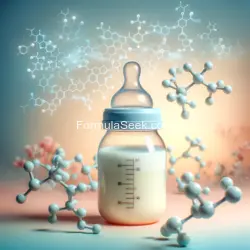
Understanding Casein Hydrolysate in Infant Formula
When it comes to infant nutrition, every ingredient in baby formula is meticulously chosen to ensure the health and development of newborns. One such ingredient that often raises questions is casein hydrolysate. Let's dive into what it is and why it's added to infant formula.
What is Casein Hydrolysate?
Casein is a type of protein found in cow's milk, which constitutes about 80% of the protein content in the milk. 'Hydrolysate' refers to the process of breaking down these proteins into smaller pieces through hydrolysis. During this process, water is used to break the protein bonds, resulting in smaller, more easily digestible molecules.
Why is it Added to Infant Formula?
Easier Digestion: Newborns, especially those born prematurely or with certain medical conditions, often have immature digestive systems. The hydrolysis process makes casein easier to digest compared to the intact proteins found in cow's milk or soy-based formulas.
Reduced Allergenicity: The hydrolysis process also reduces the allergenic potential of casein. This is crucial for infants who are at a high risk of allergies or have shown signs of milk protein intolerance or allergy. Hydrolyzed protein formulas are often recommended for these infants to minimize allergic reactions.
Nutritional Value: Despite the breakdown process, casein hydrolysate retains its nutritional value, providing essential amino acids necessary for growth and development in infants.
Mimicking Human Milk: The composition of hydrolyzed protein in infant formula is often designed to more closely resemble human breast milk, which is the gold standard in infant nutrition.
When is Casein Hydrolysate Recommended?
Pediatricians may recommend a hydrolyzed protein formula in certain situations:
- Milk Protein Allergy: Infants diagnosed with a cow's milk protein allergy.
- Digestive Issues: Babies who have difficulty digesting standard milk-based formulas.
- Family History of Allergies: If there's a strong family history of allergies, some doctors might suggest hydrolyzed formula as a preventive measure.
- Preterm Infants: Premature babies often benefit from hydrolyzed formulas due to their immature digestive systems.
Conclusion
In conclusion, casein hydrolysate is vital in infant nutrition, particularly for those with specific dietary needs. It's important to remember that the choice of formula should always be made in consultation with a pediatrician, who can provide guidance based on an infant’s individual health needs and circumstances.
Remember, infant nutrition is a critical part of a baby’s early life, and understanding the ingredients in infant formula can help parents make informed decisions for their child’s health.



